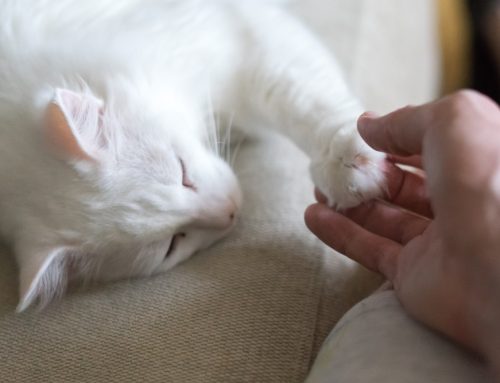Ask any veterinary clinic, shelter, or pet supply store and they’ll tell you that on any given day, one or more lost pets are brought in. No matter our best intentions, pets do manage to slip out, and it only takes a few minutes for a pet to go missing.
That’s why microchipping is so important. Whether you have a kitten/puppy or you care for an adult pet, microchips play a crucial role in reuniting lost pets with their owners.
The Fantastic World of the Microchip
Microchips may seem super high tech, but in reality, they’re a basic, passive device that doesn’t even require batteries. Microchips are tiny radio transponders that work much like a credit card chip. They’re about the size of a grain of rice and emit a signal when a corresponding scanner is placed over them.
The microchip is enclosed in a biocompatible capsule that’s placed between the shoulder blades using a syringe. Many pet owners worry this procedure is painful, but it’s actually similar to receiving a vaccine. The microchip is permanent, and your pet will be associated with a unique ID number for the rest of their life.
Each microchip can be read by a scanner that detects its radio frequency, identifying the number assigned to your pet.
Contact Information Required
Unfortunately, most pet owners stop just short of completing the last step that makes the microchip effective: registering the chip with the manufacturer. When your pet receives their chip, you will be sent home with the paperwork to provide your contact information. Please don’t forget to submit these forms! Without this important step, the microchip is useless.
It’s also imperative to update this information each time you move, change numbers, etc. We recommend setting up a twice-yearly reminder to make sure the information in the registry is current.
Is Microchipping Effective?
Absolutely! While it’s not a guarantee, microchipping significantly improves the chances of a successful reunion should you become separated from your pet. A study of over 7,700 stray animals showed that without microchips, only 20% of dogs were returned to their owners. For those with microchips, the number increased to over 50%. Likewise, non-microchipped cats were returned to their owners at a shockingly low rate of 2%, whereas those with microchips reached 32%.
While microchipping may not prevent your curious cat or dog from getting loose, it can help ensure a joyous reunion. Please give us a call to schedule this simple procedure for your fur friend.







Leave A Comment